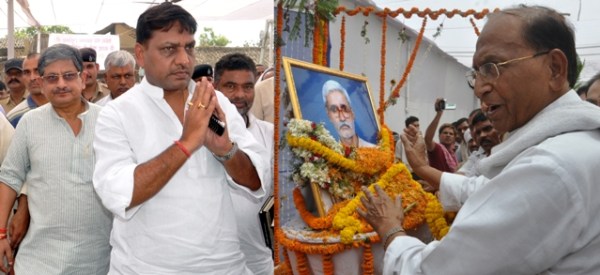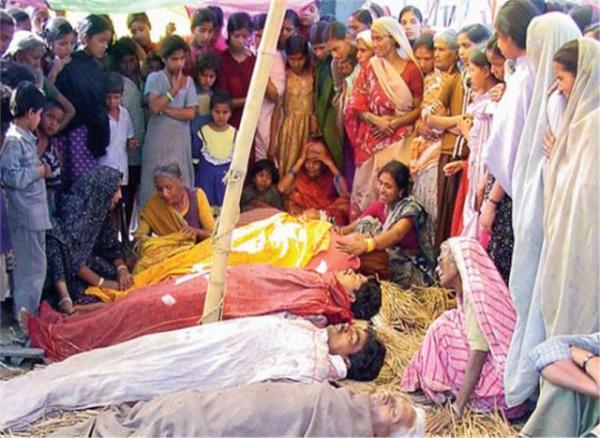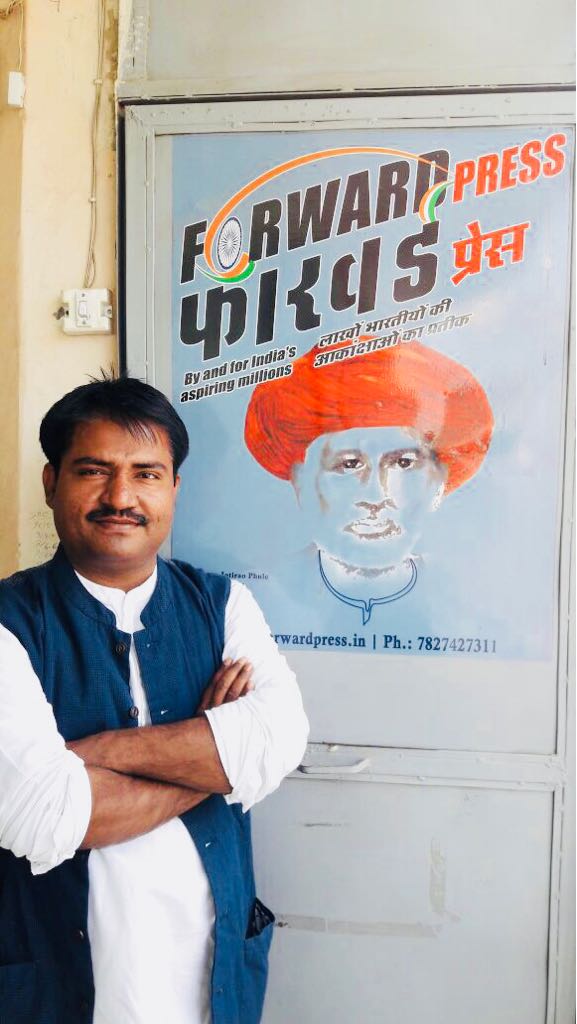Ranvir Sena chief Barmeshwar Singh, alias Brahmeswar Mukhiya, accused of murdering more than 300 Dalits and Backwards, is dead and gone. Five years ago, on 1 June 2012, his body, riddled with bullets, was found in the Katira locality of Arrah, Bihar. FORWARD Press had published a detailed article, dwelling on various aspects of this murder, in its July 2012 issue. The article had questioned the way the Special Investigation Team (SIT) constituted by the Bihar Government was investigating the murder. The most intriguing aspect of the case was that the bullets that had caused the death of Mukhiya – known as the “butcher of Bihar” – did not match with the shells found at the spot. (Read that article here).

Subsequently, under pressure from Ranvir Sena supporters, the state government handed over the investigation to the CBI. Five years down the line, the CBI has yet to solve the mystery. The top investigation agency still does not know why the bullets extracted from Mukhiya’s body do not match the shells found at the murder spot. At the time, when FORWARD Press asked Abhyanand, the then DGP of Bihar, about the bullets and the shells, he refused to comment.
He said that he retired from the Indian Police Service (IPS) on 31 December 2014 and since then, he had lost all interest in policing and related matters. It may be mentioned here that Ajitabh, the then DIG of Bhojpur Range, had admitted that he was present while the post-mortem of Mukhiya’s body was being conducted at the directive of Abhyanand. The CBI officer investigating the case refused to comment on the investigation.
All ‘murderers’ out of jail
All the five people, whom the Bihar SIT had arraigned as the accused, are out on bail. Among them is Abhay Pandey, who appeared as “absconding” in police records for a long time. So is Hareram Pande, a notorious character of Arrah, who had a longstanding enmity with Mukhiya and whom the police had declared the chief conspirator.
Politics behind Mukhiya
Mukhiya, who was synonymous with terror, set up Ranvir Sena in 1995 and went on to commit as many as 27 mass murders. He was jailed in 2002 and released in 2006, after Nitish Kumar became the chief minister of Bihar with the support of the Bharatiya Janata Party (BJP). A little later, the Amirdas Commission, which was constituted to investigate Ranvir Sena and its political patrons, was disbanded – this, when the commission’s report was almost ready. More recently, a sting operation by Cobrapost, the investigative news website, had bared the nexus between BJP leaders and Ranvir Sena.

The Rashtriya Janata Dal (RJD) and its leader Lalu Prasad Yadav had severely criticized the disbanding of the Amirdas Commission. However, now the RJD is a part of the ruling coalition, and Lalu is keeping mum on the issue.
‘My father’s murder was a political conspiracy’
Ranvir Sena has not forgotten the murder of its founder. Indrabhushan Singh, Mukhiya’s son, believes that his father’s murder was a political conspiracy and that it is politics that is coming in the way of the CBI investigation. He told FORWARD Press, “I had met top BJP leaders, including Sushil Modi and former state president Mangal Pandey, and urged them to intervene.” At that time, the BJP was part of the ruling coalition. On being asked why the Ranvir Sena is not making the identity of the murderer(s) public if it knows who those people are, Indrabhushan said, “Ranvir Sena believes in the rule of law.” It may be mentioned here that initially, Ranvir Sena had blamed Sunil Pandey, an ex-MLA of the JDU, for the murder.

Satyendra Sharma, former commander of Magadh Zone of the Ranvir Sena, says that the investigation is not being carried out properly. “Mukhiya was murdered at the behest of the state government and the government does not want the real murderers to be caught,” he said. “The CBI is taking too long to investigate the crime and the Ranvir Sena will not keep mum any longer. On 1 June, Ranvir Sena’s top leadership will hold a meeting in Patna to decide on the future course of action.”

It’s not hard to grasp why there are attempts to mythicize the killing of Brahmeshwar Mukhiya. The feudal landlords in Bihar still consider him god. Neither can the then government built on the strength of the feudal landlords be declared sinful for killing their god, nor can non-Savarnas be credited with killing him. Complications are a given in solving this murder. The question that remains is whether Mukhiya’s murder was an act of revenge on the part of the Dalits and the Backwards.
Based in New Delhi, India, ForwardPress.in and Forward Press Books shed light on the widespread problems as well as the finer aspects of Bahujan (Dalit, OBC, Adivasi, Nomadic, Pasmanda) society, literature, culture and politics. Next on the publication schedule is a book on Dr Ambedkar’s multifaceted personality. To book a copy in advance, contact The Marginalised Prakashan, IGNOU Road, Delhi. Mobile: +919968527911.
For more information on Forward Press Books, write to us: info@forwardmagazine.in





